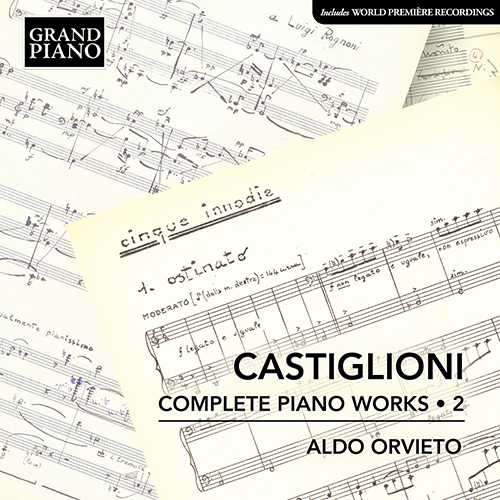
About this Release
“This album presents some of the most important piano compositions of the late 20th-century in Italy, from the neo-Classical-style exercises of Castiglioni’s student years to his first experiments with dodecaphony in the spring of 1954. In the early Cangianti, a mass of sounds that spin around one another, the piano alternates between dazzling, flamboyant virtuosity and intimate contemplation. The mood has changed by the time we get to the composer's mature works. One of the most characteristic piano works of this phase, Dulce refrigerium comprises “six sacred songs” which unfold in a single melodic line with extreme metric variation; the atmosphere is surreal, inviting reflection on the mystery of God. In Castiglioni’s last piece for piano (He), one of his most radical, the pianist plays a a single uneven line of varying density fortissimo for seven minutes. Each pianistic figure crystallizes into a major seventh (E-F) of grating dissonance. The tension grows, but there seems to be no way out and the dyad is repeated obsessively 111 times over several minutes to great incantatory effect. The piece bids farewell with a smile in the form of a playful, mocking, dodecaphonic rallentando.” — Aldo Orvieto
CASTIGLIONI, NICCOLÒ (1932–1996)
Complete Piano Works • 2
- Aldo Orvieto, piano
Niccolò Castiglioni’s music has at its heart a quest for different timbres and new musical perspectives. After the neo-Classical exercises of his student years he moved towards serial techniques with explorations of contrast and transformation. Castiglioni made his name with Inizio di movimento, consolidating this with Cangianti in which the piano becomes a ‘lyrical instrument of the most tender poetry’. The award-winning Italian pianist Aldo Orvieto continues his survey of piano works by one of Italy’s most unique 20th-century composers.
Tracklist
|
5 Innodie (1953) (00:10:00 )
|
|
1
No. 1. Ostinato (00:01:43)
|
|
2
No. 2. Giubilazione (00:00:54)
|
|
3
No. 3. Contrappunto su sol (00:01:35)
|
|
4
No. 4. Inno (00:02:04)
|
|
5
No. 5. Contrappunto su un canto fermo, "Ubi caritas et amor, Deus ibi est" (00:02:18)
|
|
3 Studi (1954) (00:05:00 )
|
|
6
No. 1. Il più presto possibile (00:00:17)
|
|
7
No. 2. Lento e sempre ugualmente pianissimo (00:01:10)
|
|
8
No. 3. Il più presto possibile (00:02:23)
|
|
9
Inizio di movimento (1958) (00:02:58)
|
|
10
Cangianti (1959) (00:10:24)
|
|
3 Pezzi (1978) (00:16:00 )
|
|
11
No. 1. Sweet (00:05:41)
|
|
12
No. 2. Kinderlied ohne Worte (00:05:10)
|
|
13
No. 3. Fregi (00:06:31)
|
|
Dulce refrigerium (1984) (00:09:00 )
|
|
14
No. 1. Humilitas (00:01:49)
|
|
15
No. 2. Humus (00:02:00)
|
|
16
No. 3. Urquelle (00:01:20)
|
|
17
No. 4. Lied (00:01:55)
|
|
18
No. 5. Liebeslied (00:01:07)
|
|
19
No. 6. Choral, "Ah! ritorni il vecchio affetto a regnar nel vostro cor" (00:00:17)
|
|
20
He (1990) (00:08:30)
|
The Artist(s)
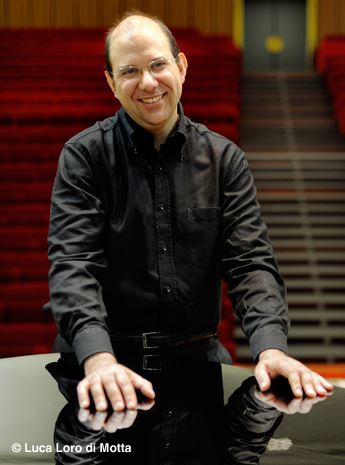 Aldo Orvieto studied at the Venice Conservatory. He owes much of his musical development to Aldo Ciccolini, with whom he recorded Busoni’s Fantasia contrappuntistica, released by Naxos in 2020 (8.574086). Orvieto has recorded programmes and concerts for the main European radio broadcasters, and has recorded more than 90 albums dedicated to 20th-century composers for labels such as ASV Records, cpo, Naxos and Nuova Fonit Cetra. Orvieto has performed as a soloist with numerous orchestras and ensembles, including the Orchestra Sinfonica Nazionale della RAI, Orchestra Della Toscana and Ensemble 2e2m, appearing at venues such as Teatro La Fenice in Venice, Arena di Verona and the Teatro Comunale di Bologna. He has appeared in concert and recorded with musicians such as Luigi Alberto Bianchi, Arturo Bonucci and Sara Mingardo, and has given many world première performances, in particular of works by Maderna, Clementi, Azio Corghi and Fabio Nieder. In 1979 Orvieto was one of the founders of the Ex Novo Ensemble. In 2019, he won the Italian Music Critics’ Abbiati Prize for an album of chamber works by Claudio Ambrosini. In 2020, together with cellist Luigi Piovano, he received the Isang Yun Prize (Unesco Creative City of Music Awards) for a recording dedicated to the Korean composer. Orvieto has published several musicological essays dedicated to the analysis of 20th-century piano repertoire and of German Lied (LIM and Armando Editore). He has written the piano entry for the soon-to-be-published Encyclopedia of Music (1900–2025) (Treccani).
Aldo Orvieto studied at the Venice Conservatory. He owes much of his musical development to Aldo Ciccolini, with whom he recorded Busoni’s Fantasia contrappuntistica, released by Naxos in 2020 (8.574086). Orvieto has recorded programmes and concerts for the main European radio broadcasters, and has recorded more than 90 albums dedicated to 20th-century composers for labels such as ASV Records, cpo, Naxos and Nuova Fonit Cetra. Orvieto has performed as a soloist with numerous orchestras and ensembles, including the Orchestra Sinfonica Nazionale della RAI, Orchestra Della Toscana and Ensemble 2e2m, appearing at venues such as Teatro La Fenice in Venice, Arena di Verona and the Teatro Comunale di Bologna. He has appeared in concert and recorded with musicians such as Luigi Alberto Bianchi, Arturo Bonucci and Sara Mingardo, and has given many world première performances, in particular of works by Maderna, Clementi, Azio Corghi and Fabio Nieder. In 1979 Orvieto was one of the founders of the Ex Novo Ensemble. In 2019, he won the Italian Music Critics’ Abbiati Prize for an album of chamber works by Claudio Ambrosini. In 2020, together with cellist Luigi Piovano, he received the Isang Yun Prize (Unesco Creative City of Music Awards) for a recording dedicated to the Korean composer. Orvieto has published several musicological essays dedicated to the analysis of 20th-century piano repertoire and of German Lied (LIM and Armando Editore). He has written the piano entry for the soon-to-be-published Encyclopedia of Music (1900–2025) (Treccani). The Composer(s)
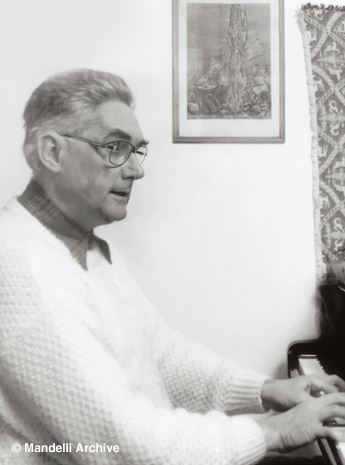 Niccolò Castiglioni was one of the most singular figures on the Italian music scene of the latter half of the 20th century. Including world première recordings, Volume 1 of this complete edition reveals the exceptional quality of Castiglioni’s early piano works, the cantabile solemnity found in his exploration of twelve-tone techniques, and the quest for simplicity in later pieces that include the Seconda sonatina discovered among the composer’s papers after his death. The acclaimed pianist Aldo Orvieto has recorded and performed extensively throughout his career and is a specialist in Italian 20th-century repertoire.
Niccolò Castiglioni was one of the most singular figures on the Italian music scene of the latter half of the 20th century. Including world première recordings, Volume 1 of this complete edition reveals the exceptional quality of Castiglioni’s early piano works, the cantabile solemnity found in his exploration of twelve-tone techniques, and the quest for simplicity in later pieces that include the Seconda sonatina discovered among the composer’s papers after his death. The acclaimed pianist Aldo Orvieto has recorded and performed extensively throughout his career and is a specialist in Italian 20th-century repertoire. 
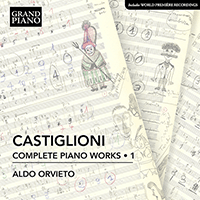
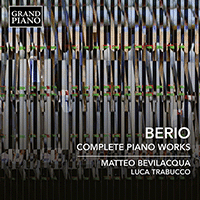
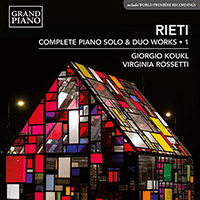
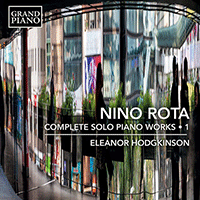
 Grand Piano has gained a reputation for producing high quality recordings of rare keyboard gems. Dedicated to the exploration of undiscovered piano repertoire, the label specialises in complete cycles of piano works by many lesser-known composers, whose output might otherwise have remained unknown and unrecorded.
Grand Piano has gained a reputation for producing high quality recordings of rare keyboard gems. Dedicated to the exploration of undiscovered piano repertoire, the label specialises in complete cycles of piano works by many lesser-known composers, whose output might otherwise have remained unknown and unrecorded.






